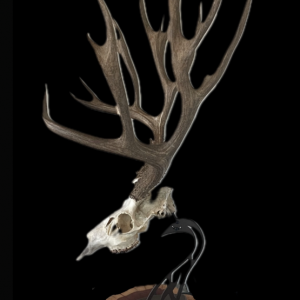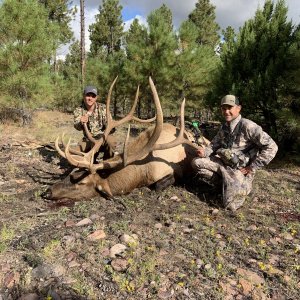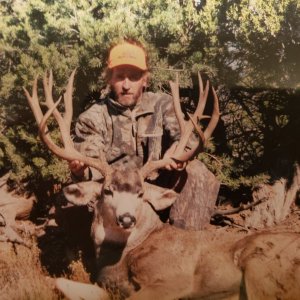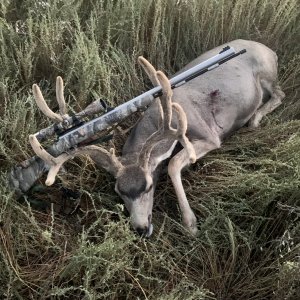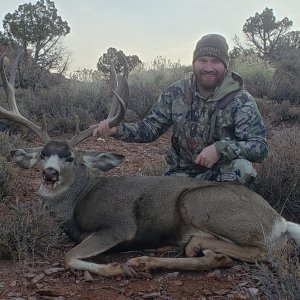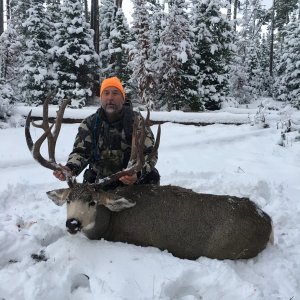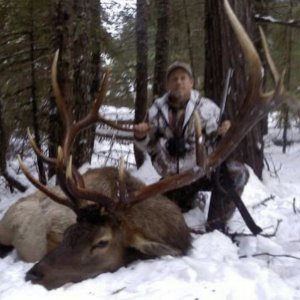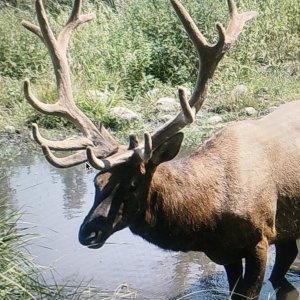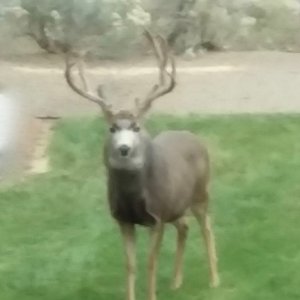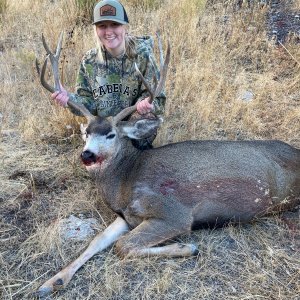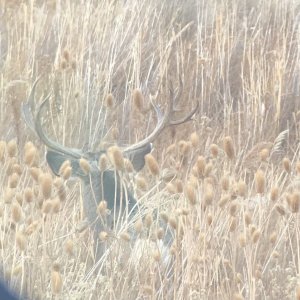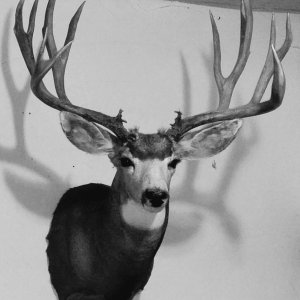You are using an out of date browser. It may not display this or other websites correctly.
You should upgrade or use an alternative browser.
You should upgrade or use an alternative browser.
what makes a good tracker ?
- Thread starter B_F_E
- Start date
B
bobcatbess
Guest
B_F_E_
IN MY OPINION A REAL HUNTER WILL TRACK A WOUNDED ANIMAL THE REST OF THE SEASON AND THEN SOME IF HE/SHE HAS TOO!!!
I'VE HELPED PEOPLE OVER THE YEARS TRACK ANIMALS DOWN WHEN THE HUNTER HAD ALREADY GIVEN UP,SOMETIMES RIGHT IN THE MIDDLE OF OF THE HUNT,I CAN'T STAND TO SEE AN ANIMAL WASTE!!!
I'VE SEEN TO MANY PANSY-ASSES GIVE UP WAY TOO EARLY AND SAY TO HELL WITH IT!!!
WHAT REALLY AGGITATES ME IS THESE IDIOTS THAT HUNT BIG GAME WITH REAL SMALL CALIBERS AND START POUNDING THEM IN THE BROADSIDE/GUTS,IT MAKES THE TRACKING A HELL OF ALOT HARDER!!!
I'VE HELPED RECOVER A FEW ANIMALS IN MY DAY DUE TO TRACKING SKILLS,NO I'M NO PRO BUT I WON'T GIVE UP EASY!!!
RUN INTO A COUPLE OF GUY'S A FEW YEARS BACK LOOKING OFF INTO A BASIN,THEY FINALLY TOLD ME THEY THOUGHT THEY'D HIT A BUCK,THE FOLLOWING DAY I WENT BACK AND HUNTED THE SAME AREA,I FOUND THE BLOOD TRAIL AND FOLLOWED IT RIGHT TO THE DEER,THERE WAS A PEPSI CAN AND A CANDY BAR WRAPPER RIGHT BY THE DEER,EVIDENTALLY THEY FIGURED IT WOOD BE TO MUCH WORK TO GET IT OUT,LEFT IT TO ROTT,I WISHED I'D OF HAD THEIR NAMES,THERE ASSES WOULD OF PAID THE PRICE!!!
AN ETHICAL HUNTER KNOWS IF HE/SHE WOUNDS AN ANIMAL THE HUNT IS OVER AND THE TRACKING SKILLS GO TO WORK,SOME WILL DISAGREE,I DON'T CARE!!!
THE ONLY bobcat THINKING THERE OUGHT TO BE A TRACKING CLASS AS PART OF THE HUNTER SAFETY PROGRAM!!!
IN MY OPINION A REAL HUNTER WILL TRACK A WOUNDED ANIMAL THE REST OF THE SEASON AND THEN SOME IF HE/SHE HAS TOO!!!
I'VE HELPED PEOPLE OVER THE YEARS TRACK ANIMALS DOWN WHEN THE HUNTER HAD ALREADY GIVEN UP,SOMETIMES RIGHT IN THE MIDDLE OF OF THE HUNT,I CAN'T STAND TO SEE AN ANIMAL WASTE!!!
I'VE SEEN TO MANY PANSY-ASSES GIVE UP WAY TOO EARLY AND SAY TO HELL WITH IT!!!
WHAT REALLY AGGITATES ME IS THESE IDIOTS THAT HUNT BIG GAME WITH REAL SMALL CALIBERS AND START POUNDING THEM IN THE BROADSIDE/GUTS,IT MAKES THE TRACKING A HELL OF ALOT HARDER!!!
I'VE HELPED RECOVER A FEW ANIMALS IN MY DAY DUE TO TRACKING SKILLS,NO I'M NO PRO BUT I WON'T GIVE UP EASY!!!
RUN INTO A COUPLE OF GUY'S A FEW YEARS BACK LOOKING OFF INTO A BASIN,THEY FINALLY TOLD ME THEY THOUGHT THEY'D HIT A BUCK,THE FOLLOWING DAY I WENT BACK AND HUNTED THE SAME AREA,I FOUND THE BLOOD TRAIL AND FOLLOWED IT RIGHT TO THE DEER,THERE WAS A PEPSI CAN AND A CANDY BAR WRAPPER RIGHT BY THE DEER,EVIDENTALLY THEY FIGURED IT WOOD BE TO MUCH WORK TO GET IT OUT,LEFT IT TO ROTT,I WISHED I'D OF HAD THEIR NAMES,THERE ASSES WOULD OF PAID THE PRICE!!!
AN ETHICAL HUNTER KNOWS IF HE/SHE WOUNDS AN ANIMAL THE HUNT IS OVER AND THE TRACKING SKILLS GO TO WORK,SOME WILL DISAGREE,I DON'T CARE!!!
THE ONLY bobcat THINKING THERE OUGHT TO BE A TRACKING CLASS AS PART OF THE HUNTER SAFETY PROGRAM!!!
alwayzbhuntin
Moderator
- Messages
- 909
I don't know if I would be considered a good tracker or not, but some of the things I learned pertain to actually tracking an animal down, not necessarily a wounded one, but one I am hunting or scouting for. For instance,pretend that you are the animal that you are looking for think and move as the animal. When you lose the trail, ask yourself where you would go if you where the animal. Know their habits.
Never walk on, or destroy any tracks that you are following. If you do so you will be losing a reference that you could go back to if you lost the trail. Try to keep the track between you and the sun. In doing so the track will stand out far better,because animals are more active during the early hours , and, also because the sun makes long shadows early in the day and this makes the tracks stand out better. Just a few things I try and do in different situations.
Never walk on, or destroy any tracks that you are following. If you do so you will be losing a reference that you could go back to if you lost the trail. Try to keep the track between you and the sun. In doing so the track will stand out far better,because animals are more active during the early hours , and, also because the sun makes long shadows early in the day and this makes the tracks stand out better. Just a few things I try and do in different situations.
I think tracking seems to be a lost hunting skill to some.
Tracking does not need to happen only if you wound an animal.
With good tracking skills you can follow the habits of a buck at all times of the year.
Many would be surprised how great it works on finding a buck that refuses to show itself during a hunt as well.
Best,
Jerry
Tracking does not need to happen only if you wound an animal.
With good tracking skills you can follow the habits of a buck at all times of the year.
Many would be surprised how great it works on finding a buck that refuses to show itself during a hunt as well.
Best,
Jerry
M
MartinHunter
Guest
My dad, cuz, and I helped these three morons track a deer this rifle season. It happend that I was walking down a trail and noticed blood all up and down it. I got to the point were I was supposed to meet up with the crew when a couple of guys came from around a hill looking like they were tracking. I told my dad and cuz that I saw the blood so we went to tell the guys we might have cut their trail. They were apreciative, but through out the 2 hrs we spent helping them things started to piss me off. It seemed as though they never picked up the trail and they left the real tracking to us. But the thing that really ticked me off is when one guy said to the other "are you sure this trail is not from the fawn you hit lst night?" Number 1, this was the second deer he had wounded and not found and 2nd this was a bucks only area. Nedless to say, we tracked the deer for a long time but my family was unable to help locate it. tThe guy was shooting a .270 so you know it had the nock down power, he just must have been a piss poor shot.
Michael
Michael
I
intimidater37
Guest
it takes a lot of patience to get on your hands and knees to look for the smallest of sign it also takes a a person to teach others and for all who hunt to learn to do this even when i shoot a deer and i see it go down i go over to where i shot it and start to see if i can follow a blood trail or tracks to pratice every year this method so if i need to it will come back to me second hand
NVBighorn
Long Time Member
- Messages
- 9,458
Well, if you want to do some interesting reading on the art of tracking try the Tom Brown Jr. series. I would recommend starting with "The Tracker" and then "The Way of the Scout". There's a whole lot of philosophy in those books and at first you might not see where you are learning about tracking but it's there. It's really about a whole way of life. They are kind of a slow read until you get into the way the guy writes. He can spend what seems like hours detailing watching the ants make tracks on the trees, but once you figure out that the patience is a huge part of it there is much more to be learned than how to follow this animal down that trail.
If you get beyond those two books and are still interested there is a whole bunch of others. Some of them get into more of the spiritual side of things so beware, if you are a very strongly religious person you may feel threatened by it. It doesn't bother me but I know some people who get real testy about it. I found it "enlightening".
You can buy his books on Amazon or one of those places for under $10 each in paperback.
If you get beyond those two books and are still interested there is a whole bunch of others. Some of them get into more of the spiritual side of things so beware, if you are a very strongly religious person you may feel threatened by it. It doesn't bother me but I know some people who get real testy about it. I found it "enlightening".
You can buy his books on Amazon or one of those places for under $10 each in paperback.
R
RACKMASTER
Guest
Someone who cares enough to find his wounded game! me its (I've been told) great instints,research,listen to everybody that has a story. I learned alot from all of the above to finding my bear just from the smell of his blood(ran down hill 1/2 mi plus)to the bucks(4) I tracked by blood trail(2 bow hits)downhill!(2)very long range rifle shots tracked by the buck foot print(that had looked a little bit odd,down hill!). Follow thru every shot! THAT WHAT MAKE A GOOD TRACKER! Happy hunting
oh! most wounded game heads down hill. Jack
oh! most wounded game heads down hill. Jack
H
Hoosierbuck
Guest
Talking hit animals here: 1) Have some flagging tape in your kit. Mark sign every so often, it creates a trend that you can look back and see, to get an idea of where the animal might be headed. 2) Look on the ground, but also on the sides of trees, bushes, and grasses where the animal may have brushed against. 3) Be ready for the surprise turn. Don't assume you know where the animal was headed and skip looking for sign to check that area. 4) Follow the sign. 5) If you are tracking at night, a coleman gas lantern throws more light than a flashlight. 6)Bring along someone who is better at tracking than you, or tag along on their tracks to learn. 7) Shoot well, and tip them over in place. 8) Do it a lot, and don't give up. Experience is the best teacher.
Good topic.
Hoosierbuck
Good topic.
Hoosierbuck
You've all talked about the techniques. Some of you have talked about what really matters, the individual. What makes a tracker is being a hard-headed person that won't give up, even though the tracks are not there, but you know that you are on the non-visible trail, you keep at it, and in a another 50 yards you pick up something, and then another 50 yards somthing else. It is discouraging to keep going when there isn't anything there.
ANY FOOL can follow plain tracks. It is when the tracks are dern near impossible to find, and the guy just won't admit defeat...that makes a tracker.
ANY FOOL can follow plain tracks. It is when the tracks are dern near impossible to find, and the guy just won't admit defeat...that makes a tracker.
Smokepole
Active Member
- Messages
- 797
As mentioned here a number of times, it is dedication and practice. A bowhunter probably gets more opportunities to track a hit animal than hunters using other weapons. My Dad, an avid bowhunter, taught me to track wounded deer when I was a kid. He wanted me to know how to track a wounded deer before I could even go hunting. We'd spend hours tracking down a deer he hit with a bow, but unfortunately may not have been an immediately fatal shot.
I use the skills he taught me anytime I go into the hills, whether it's hunting season or not. I ask my kids all the time to tell me if the track in front of them is an elk, deer or moose, a buck or bull. Where do you think it is headed and why. When they get old enough to hunt on their own, I want them to be able to track if needed.
Two years ago I shot a buck and later found that I had hit him in the liver. There was no blood to follow. I had to distingish his tracks from three other bucks that were with him. Because he was hit, his tracks kicked up more dirt at first and then as he slowed down I had to follow just his prints. Fortunately, he still stumbled and his prints were distinguished from the other bucks. It took me easily an hour to track him the first 50 yards. The last 40 yards was easy, as he had fallen and slid (tumbled) down a steep hill.
Smokepole
I use the skills he taught me anytime I go into the hills, whether it's hunting season or not. I ask my kids all the time to tell me if the track in front of them is an elk, deer or moose, a buck or bull. Where do you think it is headed and why. When they get old enough to hunt on their own, I want them to be able to track if needed.
Two years ago I shot a buck and later found that I had hit him in the liver. There was no blood to follow. I had to distingish his tracks from three other bucks that were with him. Because he was hit, his tracks kicked up more dirt at first and then as he slowed down I had to follow just his prints. Fortunately, he still stumbled and his prints were distinguished from the other bucks. It took me easily an hour to track him the first 50 yards. The last 40 yards was easy, as he had fallen and slid (tumbled) down a steep hill.
Smokepole
Good info, durring hunting seasons, I believe the bigger a mule deer becomes the less visible they are durring daylight hours, human presence/presure usually alerts Mr. big its time to become daylight-shy & natural selection(hunters)weed out the non-weary, simular to the muleys adaptations, being able to locate Mr big's nieghborhood from his tracks, increases our likelyhood 4 trophy success, my oppinion, whats yours?
P.S. Buckspy, go pump yourself
P.S. Buckspy, go pump yourself
R
RLH
Guest
are we talkin' about 2 different things? tracking wounded animals or healthy animals? if a wounded animal is hit good it shouldn't be much of a chore. tracking healthy animals is what is hard. with the advent of all the electronic crap, high dollar optics, rangefinders, trail cameras, chute planes, etc., tracking is becoming a lost art. the guys i know that are good trackers have one thing over everyone else. experience. actual time following bucks and learning their traits. i've known several real good muley hunters and they are all trackers of the highest order. one of them just started using a scope a few years before a stroke put him in a wheelchair. figured if he was gonna jump em outta their bed that he didn't need more than iron sights. tracking is a real exciting way to do things. if you have a little fresh snow it can be more heart pounding than anything. tracking one in dry conditions can be grueling work, but the results are worth the effort. find an ol' bull's tracks in fresh snow and follow him into dark timber. if you get him, you've earned it.
It is quite common for me to track when I've got some snow. Be it early season or late. If I find some hawg tracks, I love to jump on them and try to catch up to the bugger that made them. Many times I've had the big ba$tards lead me into the thickest gawd aweful jungle chocked with windthrow where they can hear my every move. I find tracking works best up here during the rut. Nothing like walking up on a big ol' buck not more than 20 yards from ya.
fisrtcoueswas80inches
Very Active Member
- Messages
- 1,648
lol i love number 7. myself i havent done much tracking on big game but on rabbits and such have done quite a bit. my extent of big game tracking is about 15yards, even though i had the dead buck in sight the whole time. followed the blood from where he was standing when i shot him and took the same path he took to his final resting place
casey
casey
C
Cowboy
Guest
Let me start by stating that I am not a good tracker. Very very few hunters are good trackers. I have had the good fortune to know one. Let me tell you a little about him.
He had the opportunity when growing up to go to college, like his brother did. He is very intelligent and could probably be well off like his brother, if he chose to. He however, is madly in love with wild things and places. He lives in a tin trailer house, drives a 78 Ford ? ton, and shoots a beat-up 30-06.
He calls out animal tracks and name critters from their sign in the snow while in a pickup going down the county road. He can look up a trail of tracks and know just where the animal picked its way through the terrain without even seeing the footprints. He notices and remembers things about the weather and what it did for the last week or two that I dismissed long ago, if I even noticed it at all. He will tell you what the weather did to the sign, and you just sit there trying to decide if he is pumping you with BS or not. However, once in a while I have had the chance to check on him and haven't found an error yet.
I could go on, but the reason he is this way is because he is an intense observer, has an excellent memory, a huge passion for the outdoors, and he spends an inordinately huge amount of time outdoors screwing off. I hate him for it, but he puts up with me once in awhile. Anyway, that's my idea of a good tracker.
He had the opportunity when growing up to go to college, like his brother did. He is very intelligent and could probably be well off like his brother, if he chose to. He however, is madly in love with wild things and places. He lives in a tin trailer house, drives a 78 Ford ? ton, and shoots a beat-up 30-06.
He calls out animal tracks and name critters from their sign in the snow while in a pickup going down the county road. He can look up a trail of tracks and know just where the animal picked its way through the terrain without even seeing the footprints. He notices and remembers things about the weather and what it did for the last week or two that I dismissed long ago, if I even noticed it at all. He will tell you what the weather did to the sign, and you just sit there trying to decide if he is pumping you with BS or not. However, once in a while I have had the chance to check on him and haven't found an error yet.
I could go on, but the reason he is this way is because he is an intense observer, has an excellent memory, a huge passion for the outdoors, and he spends an inordinately huge amount of time outdoors screwing off. I hate him for it, but he puts up with me once in awhile. Anyway, that's my idea of a good tracker.
O.K. B_F_E. I'm done. And you don't have to refer to me as
Mr. big anymore. Aren't you just the serious post writer now!
The dumb ones get shot and the smart ones learn that hiding means surviving. I don't know how in the hell a guy could track a buck in the oakbrush and quakie forests. I say just ride around on your quad and whack them off the handlebars. Just try not to shoot him in the guts.
Mr. big anymore. Aren't you just the serious post writer now!
The dumb ones get shot and the smart ones learn that hiding means surviving. I don't know how in the hell a guy could track a buck in the oakbrush and quakie forests. I say just ride around on your quad and whack them off the handlebars. Just try not to shoot him in the guts.
H
huntsonora
Guest
The 2 words that come to mind are patience and persistance, most hunters are content to leave the track and come back to find him later. Its also easier to hop in the truck and look for more deer. I could go on and on about things I have observed but it would really take along time to do so. We have a guide named Joaquin that is one of the best I have ever seen, He could track a rattlesnake across 1000 yards of asphalt. A few years back I tracked a wounded buck for almost 3 miles before turning back to go and get him, I had been on my hands and knees and had lost and refound the track numerous times but when it crossed the ranch boundary we went back to camp for Joaquin, he followed the track at a brisk walk for almost another mile befoe we caught up to the deer and put him down, he was a 34"wide 194" gross typical. I will never forget the display he put on that day and I have learned a lot from him since then.
Drum
Drum

